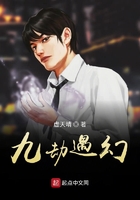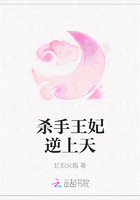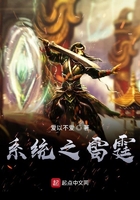"Who doubts it?" answered Asti calmly. "By wizardry were you born; by wizardry was Pharaoh slain; by wizardry we are saved to an end that we cannot guess; by wizardry, or what men so name, does the whole world move; only being so near we see it not."Tua thought a while, then said:
"Well, this golden ship is better than the sty of Abi the hog, nor do I believe that we journey to no purpose. Still I wonder what that spirit who named herself my Ka does on the throne of Egypt; also how we came on board this boat, and whither we sail.""Wonder not, for all these things we shall learn in due season, and for my part, although I hate him I am sorry for Abi," answered Asti drily.
So they sat there in the pavilion watching the desert, over the sands of which their ship seemed to move, till at length the sun grew low, and they went to walk upon the deck. Then they returned to eat of the delicious food that was always provided for them in such plenty, and at nightfall sought their couches, and slept heavily, for they needed rest.
When they awoke again, it was daylight, though no sun shone through the skies, and their vessel rolled onward across a wide and sullen sea out of sight of land. Also the silken pavilion about them was gone, and replaced by a cabin of massive cedar wood, though of this, being sated with marvels, Tua and Asti took little note. Indeed, having neither of them been on an angry ocean before, a strange dizziness overcame them, which caused them to sleep much and think little for three whole days and nights.
At length, one evening as the sun sank, they perceived that the violent motion of the vessel had ceased with the roaring of the gale above, which for all this while had driven them onward at such fearful speed. Venturing from their cedar house, they saw that they had entered the mouth of a great river upon the banks of which grew enormous trees that sent out long crooked roots into the water, and that among these roots crouched crocodiles and other noisome reptiles.
Also the white-robed oarsmen had appeared again, and, as there was no wind, rowed the ship up the river, till at length they came to a spit of sand which jutted out into the stream, and here cast anchor.
Now Tua's and Asti's desire for food returned to them, and they ate.
Just as they had finished their meal, and the sun was sinking suddenly, there appeared before them two masked men, each of whom bore a basket in his hand. Asti began to question them, but like the captain and the steersman, they seemed to be deaf and dumb. At least they made no answer, only prostrated themselves humbly, and pointed towards the shore where now Tua saw a fire burning on a rock, though who had lit it she did not know.
"They mean us to leave the ship," said Asti. "Come, Queen, let us follow our fortunes, for doubtless these are high.""As you will," answered Tua, "seeing that we should scarcely have been brought here to no end."So they accompanied the men to the side of that splendid vessel, for now the netting that confined them had been removed, to find that a gangway had been laid from its bulwark to the shore. As they stepped on to this gangway their masked companions handed to each of them one of the baskets, then again bowed humbly and were gone. Soon they gained the bank, and scarcely had their feet touched it when the gangway was withdrawn, and the great oars began to beat the muddy water.
Round swung the ship, and for a minute hung in midstream. There stood the captain on the foredeck, and there was the steersman at the helm, and the red light of the sinking sun turned them into figures of flame. Suddenly with a simultaneous motion these men tore off their masks so that for a moment Asti and Tua saw their faces--and behold!
the face of the captain was the face of Pharaoh, Tua's father, and the face of the steersman was the face of Mermes, Asti's husband.
For one moment only did they see them, then a dark cloud hid the dying sun, and when it passed that ship was gone, whither they knew not.
The two women looked at each other, and for the first time were much afraid.
"Truly," said Tua, "we are haunted if ever mortals were, for yonder ship has ghosts for mariners.""Aye, Lady," answered Asti, "so have I thought from the first. Still, take heart, for these ghosts once were men who loved us well, and doubtless they love us still. Be sure that for no ill purpose have we been snatched out of the hand of Abi, and brought living and unharmed by the shades of Pharaoh your sire, and Mermes my husband, to this secret shore. See, yonder burns a fire, let us go to it, and await what may befall bravely, knowing that at least it can be naught but good."So they went to the rock and, darkness being come, sat themselves down by the fire, alongside of which lay wood for its replenishment, and near the wood soft robes of camel-hair to shield them from the cold.
These robes they put on with thankfulness, and, having fed the flame, bethought them of and opened the baskets which were given to them when they left the ship. The first basket, that which Asti held, they found to contain food, cakes, dried meats and dates, as much as one woman could carry. But the second, that which had been given to Tua, was otherwise provided, for in the mouth of it lay a lovely harp of ivory with golden strings, whereof the frame was fashioned to the shape of a woman. Tua drew it out and looked at it by the light of the fire.
"It is my own harp," she said in an awed voice, "the harp that the Prince of Kesh, whom Rames slew, brought as a gift to me, to the notes of which I sang the Song of the Lovers but just before the giver died.
Yes, it is my own harp that I left in Thebes. Say, now, Nurse, how came it here?""How came /we/ here?" answered Asti shortly. "Answer my question and Iwill answer yours."















